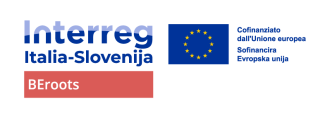On Friday, November 14, 2025, we attended the conference Knowledge Networks for a Long-Lived Society: The Open University, held at the Faculty of Arts, University of Ljubljana. The event brought together researchers, practitioners, and educators from various fields to reflect on how knowledge, collaboration, and innovation can contribute to shaping a society prepared for longevity.
The central focus of the conference was the question of what kind of knowledge is needed for a high-quality life in a long-lived society and how universities can become drivers of change—not only as educational institutions but also as community connectors and innovation creators. Discussions addressed the challenges of age-friendly environments, the importance of lifelong learning, digital inclusion, and intergenerational cooperation. It was emphasized that longevity is not merely a demographic statistic but an opportunity to develop new forms of learning, work, and coexistence.
Interdisciplinarity was also at the forefront: connecting diverse fields such as andragogy, tourism, urban planning, technology, anthropology, economics, architecture, sociology, and linguistics proved essential for shaping accessible practices. Our experience confirms that knowledge networks are not just a theoretical concept but a practical tool for co-creating solutions that consider the needs of older adults, vulnerable groups, and the wider community.
At the conference, we presented the paper Knowledge Networks: A Tool for Developing Accessible Tourism and Education, where we demonstrated how interdisciplinarity contributes to the development of accessible tourism and education for older adults. We highlighted the importance of inclusive practices that require a holistic view of complex systems and introduced the use of systems thinking and design thinking methodology (DTM) as key approaches for creating innovative, user-centered solutions. As an example of good practice, we showcased three developed digital thematic trails designed for older adults, created in collaboration with the local environment within the Interreg BEroots project: Between Rivers and Lagoons – Artistic Routes, financed by the Interreg VI-A Italy–Slovenia program.
The conference opened space for critical reflection and the exchange of best practices. We left with the understanding that building flexible, inclusive, and collaborative education models that connect academic knowledge with local contexts is essential for a sustainable future. We are pleased to have contributed to the discussion on accessible tourism and education and to have connected with stakeholders who believe in the power of knowledge as a common good.

